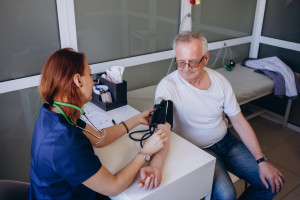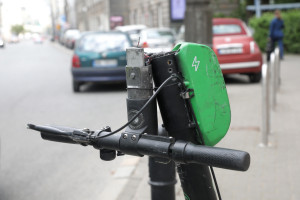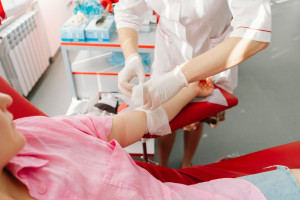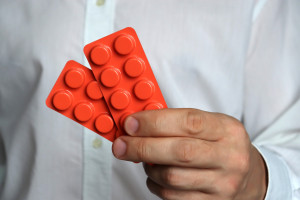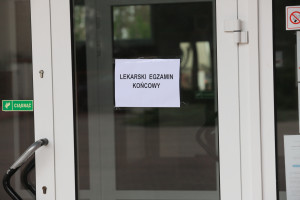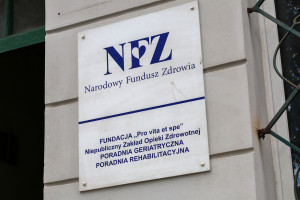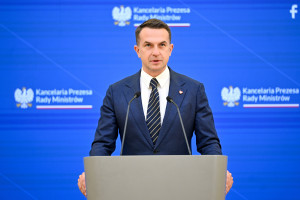4500 kcal for blood. There are new things to replace chocolate bars.

- The author of the petition to the Ministry of Health asked for changes to the composition of regeneration meals provided to blood donors after donation.
- He noted that some blood donation centers offer meals containing peanut butter and peanuts.
- - Although they are a source of protein and fats, their consumption may be associated with certain health risks for donors - he pointed out
- Chocolate, in turn, apart from its high energy value, also contains a lot of sugar and fat.
- In response to the petition, the Ministry of Health has presented a list of recommended products that can be obtained after donating blood. It's not just chocolate.
- First of all, peanuts are one of the most common food allergens, and their consumption by allergic people can lead to serious allergic reactions, including anaphylactic shock - wrote an anonymous author in a petition to the Ministry of Health.
He added that some studies indicate that high intake of saturated fat, which can be found in low-quality peanut butters , is not beneficial for the cardiovascular system, especially when the body needs easily digestible nutrients to recover after a blood donation.
With the health and safety of donors in mind, the petitioner proposed introducing greater diversity in recovery meals and including alternative products such as:
- dark and milk chocolate, which provides energy and magnesium;
- cereal and protein bars;
- dried fruit, a source of natural sugars and fiber;
- natural yogurts or other easily digestible dairy products;
- fruit and vegetable juices rich in vitamins and minerals.
Maciej Karaszewski, Director of the Department of Therapeutics at the Ministry of Health, responded to the petition in July of this year. He reminded everyone that, pursuant to Article 9, Section 1, Item 4 of the Act on Public Blood Service, Meritorious Honorary Blood Donors and Honorary Blood Donors are entitled to a regenerative meal, which is provided immediately after donating blood.
" Over 600,000 people in Poland donate blood and its components each year. It's understandable that with such a large group of recipients, expectations for a regenerative meal can vary greatly," we read.
The Ministry of Health added that the regulation issued by the Minister of Health regarding the caloric value of the regenerative meal available to blood donors specifies a caloric value of 4,500 kcal, although the regulation does not specify the composition or form of this meal. "The purpose of the regenerative meal available to blood donors is primarily to compensate for the energy expenditure associated with blood donation," the Ministry of Health stated.
The Ministry of Health wrote that the issue of standardizing the regeneration meal, maintaining the highest nutritional and taste standards, while taking into account the caloric value of the meal, was and still is a priority action.
A recovery meal for blood. Chocolate isn't the only thing on the list.To understand the expectations of blood donors, on May 24, 2024, by order of the Director of the National Blood Center , a Team for the Regeneration Meal Provided to Donors in Connection with the Donation of Blood or Blood Components was established. The Team included representatives of national associations of honorary blood donors, the Polish Red Cross, food and nutrition experts from the National Institute of Public Health (PZH - National Research Institute), and representatives of blood donation and blood treatment centers and the National Blood Center.
As part of the Team's work, a survey questionnaire regarding the recovery meal provided to blood donors was developed, which was used to conduct a survey of blood donors between July 15 and August 4, 2024. 22,739 Honorary Blood Donors responded to the survey.
According to the Team’s recommendation, the regeneration meal provided by RCKiK should include products selected from the indicated catalogue, i.e.:
- chocolate;
- protein bars, cereal and dried fruit or cereal and fruit bars, muesli;
- fruit, fruit and vegetable, fruit and cereal purees;
- dried fruit (student mix);
- nut cream (100% nuts);
- nuts (100%, all types);
- fruit, fruit and vegetable juices.
The Ministry of Health concluded that the expectations of blood donors are diverse, which is why "actions are being taken to ensure that the regenerative meal provided after blood donation is diverse and adapted to the needs of blood donors."
Copyrighted material - reprint rules are specified in the regulations .
rynekzdrowia

